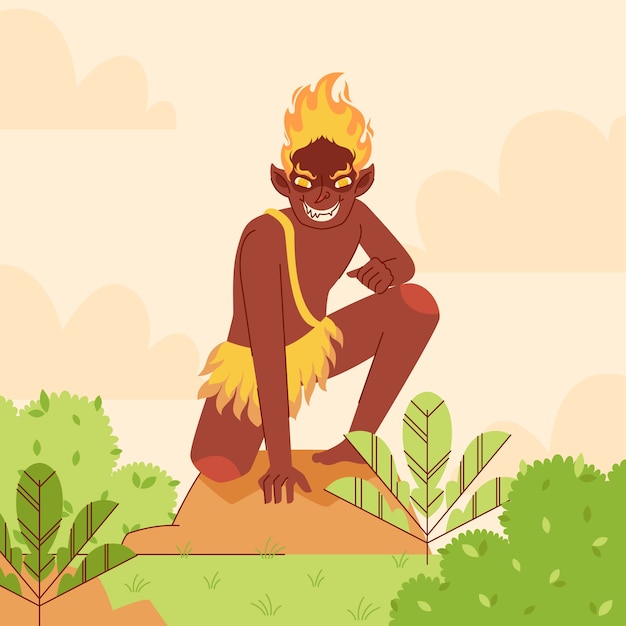Fascinating Facts About the Karankawa Tribe

The Karankawa tribe, originally from the Gulf Coast region of Texas, had a rich and vibrant history.
The Karankawa tribe was known for their skilled hunting and fishing techniques.
The Karankawa people were expert seafarers and navigators.
The Karankawa men were often tall and muscular, making them formidable warriors.
The Karankawa women were highly respected and held important roles within the tribe.
The Karankawa tribe was known for their distinctive body art, using natural pigments to create intricate designs.
The Karankawa people had a deep connection to nature and believed in the power of spirits and animal guides.
The Karankawa tribe practiced polygamy, with men often having multiple wives.
The Karankawa people had their own unique language, which is now considered extinct.
The Karankawa tribe lived in temporary shelters made of reeds and animal hides.
The Karankawa people were skilled traders and often exchanged goods with neighboring tribes.
The Karankawa tribe had a complex social structure, with tribal council leaders and respected elders.
The Karankawa people used canoes made from dugout logs for transportation along the coastline.
The Karankawa tribe had a rich oral tradition, with stories and legends passed down through generations.
The Karankawa people had a deep knowledge of local plants and herbs, using them for medicine and healing.
The Karankawa tribe had unique musical traditions, often accompanied by rhythmic drumming and chanting.
Fascinating Facts About the Karankawa Tribe part 2
The Karankawa people believed in a powerful creator god and performed elaborate rituals to honor their deities.
The Karankawa tribe had a deep reverence for the natural world and practiced sustainability in hunting and gathering.
The Karankawa people held annual feasts and celebrations to mark important milestones and harvests.
The Karankawa tribe had intricate burial practices, often burying their dead with valuable possessions for the afterlife.
The Karankawa people were known for their hospitality and would welcome visitors to their villages.
The Karankawa tribe had a unique approach to conflict resolution, often using mediation and peace treaties.
The Karankawa people had a rich spiritual tradition, with shamans and healers playing important roles in the community.
The Karankawa tribe believed in the power of dreams and often sought guidance from their dream visions.
The Karankawa people engaged in various sports and physical activities, including racing and wrestling.
The Karankawa tribe had a deep connection to the sea and its bounty, relying heavily on fishing for sustenance.
The Karankawa people had a sophisticated understanding of navigation and could traverse long distances by water.
The Karankawa tribe had their own unique musical instruments, including flutes and rattles.
The Karankawa people had a complex system of trade and barter, exchanging goods with neighboring tribes.
The Karankawa tribe had a deep respect for their ancestors and conducted frequent ancestor worship ceremonies.
The Karankawa people believed in the power of sacred places, often establishing ceremonial sites across their territory.
The Karankawa tribe had a unique system of governance, with decisions made collaboratively by the council of elders.
The Karankawa people had a rich tradition of storytelling and passed down legends and myths through generations.
The Karankawa tribe had a strong oral tradition, with spoken words holding great significance in their culture.
The Karankawa people had elaborate initiation rituals for young boys and girls, marking their transition into adulthood.
The Karankawa tribe was known for their elaborate ceremonial dances, often performed during important gatherings.
The Karankawa people had a deep knowledge of local wildlife, using their understanding to survive in their environment.
The Karankawa tribe had a unique system of counting, using tally marks and knots to keep track of numbers.
The Karankawa people had a rich tradition of tattooing, using sharp instruments to create intricate designs on their skin.
The Karankawa tribe valued education and encouraged the passing down of knowledge from elders to younger generations.
The Karankawa people had a deep respect for the balance of nature and believed in living harmoniously with their environment.
The Karankawa tribe had a strong sense of community and worked together to solve problems and challenges.
The Karankawa people had a complex system of marriage and courtship, with formal rituals and ceremonies.
The Karankawa tribe had a deep appreciation for art, creating intricate carvings and sculptures from wood and bone.
The Karankawa people had a tradition of storytelling through song, with melodies and lyrics passed down through generations.

